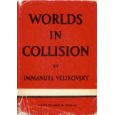
 “My writings which I have sent to the peasants cause thou to be read over throughout all the estates, that they may know in what points to defend themselves, under our authority, against acts of wrong; and let either the originals or copies be given to them. See that thou observe everything without abatement: for, with regard to what I have written to thee for abservance of justice, I am absolved; and, if thou art negligent, thou art guilty.”
“My writings which I have sent to the peasants cause thou to be read over throughout all the estates, that they may know in what points to defend themselves, under our authority, against acts of wrong; and let either the originals or copies be given to them. See that thou observe everything without abatement: for, with regard to what I have written to thee for abservance of justice, I am absolved; and, if thou art negligent, thou art guilty.”
Pope Gregory the Great wrote a lot of letters, and well, I read them all. These letters fascinating look into the medieval world through the eyes of a Pope. They are also packed full legal tidbits. The letters often act as the Pope’s conveyance of his official rulings on a number of different matters. He, as the Pope, was the judge on numerous canon law activities.
As these are letters (and owing to the difficulties of research law this old), instead af searching out a specific legal theme that runs through them all, I am just going to list the highlights. Of course, I’m positive I’ve missed some. Enjoy.
BOOK I
IX: Gregory sends Peter the Subdeacon to investigate a property dispute in which a group of monks are having their land encroached upon by a farm owned by the church. Gregory rules that if the land has been in their possession for 40 years they are the rightful owners even if it doesn’t benefit the church. If the boundary has been disputed in the last 40 years though then Peter is to appoint arbiters to resolve the problem.
X: Gregory responds to a petition from a group of Jews who claim to have license to hold under the churches authority a synagogue on the grounds of church property. He rules that if the voices from the synagogue can be heard in the church. He commands that if they are expelled that they should be given a new place of worship and one that will keep any complaint from being levied. He notes that the Jews “live under the protection of Roman laws” and therefore have the right to worship. He also notes though that the Jews should not possess Christian slaves.
XIX: Gregory overrules the ruling of a Synod that condemned Archdeacon Honoratus. He does this on the ground that the ruling ofthe synod was biased, stating that “no one who is innocent should be deposed from the ministry of his order unjustly.” He commands that the Archdeacon be restored and that if there is still a problem the Archdeacon should come and present himself to Gregory.
XXV: Gregory first discusses, in this letter to numerous patriarchs, the qualities of a ruler: “He orders well the authority he has recieved who has both learnt to maintain it and keep it in check.” This is a fairly good statement of what good law is, it creates order but does not get out of hand. He then says that “the virtue of humility ought to be so maintained that the rights of government be not relaxed.” He means that the ruler should not be so humble as to relax his own authority and lose the respect of his subordinates. At the end of the letter Gregory upholds the validity of four law creating councils that happened before: the Nicene, the Constatinople, the first Ephesine, and the Chalcedon.
XXXIII: Gregory calls for a synod to determine the guilt of a Blandus who has been held for some time by Romanus Patrician and Exarch of Italy. He asks for his release if he is not being held for a crime.
XXXIV: Gregory declares that “according to the ordinance of the law, it is not lawful to walk on the Sabbath.”
XXXVI: He writes to Peter the Subdeacon that the guidelines Gregory gave him must be “diligently perused” so as to keep Bishops from entangling themselves in secular causes except to the extent that they need to assist the poor. He then notes that their have been reports that in the past that property has been taken by the church without judicial process. He request Peter upon discovery of such a matter to make restoration to a claimant. He also requests that Peter investigate reports of people that have been enslaved illegally without trial. He wants these slave’s possessors dispossessed “by regular process of law.” He also mentions that any decree made under pain is anathema. Early evidence of the illegality of torture.
XLII: Gregory declares that Monks should not migrate from monastary to monastary, they should not hold property, should not have wives, and they should not, if they were once priests, return to being a priest.
XLIII: Gregory is rejoicing at the conversion of King Richard to Catholicism and to a “citizen of the eternal realm.” This comments a bit on the idea of jurisdiction between temporal and divine realms. Or maybe I’m stretching it.
XLIV: He rights to Peter that payment for grain should be in accordance with the Market. He then instructs Peter on collecting of taxes asking him to draw up “Charters o security” which declare what each person is to pay. He also bars the use of “unjust” weights for exacting payments. He rules that relatives of farmers on who live on church property shall have the right to succeed them. Next he decrees that a person who commits a crime shall be the only person punished and not his family as well. This is a long letter in which Gregory also rules on specific cases.
XLVIII: Gregory requests that Theodorus, Duke of Sardinia, send a property dispute to trial so it may be resolved. He also asks Theodorus to look into a will that a person wants to have annulled.
LXII: In this letter he seeks to have a woman saved from the “annoyance of legal proceedings,” but to still submit to a “just judgement.”
BOOK II
VI: Gregory mentions a Demetrius who “has been found to be involved with transactions to such an extent and of such a kind that, if he had recieved judgement without mercy according to the character of his deeds, he would undoubtedly have been condemned to a most hard death by both divine and human laws.”
XIV: The lady Timothea wishes to found and oratory in Ariminum. Gregory lets the local bishop know what must be conveyed to the church in trust for this to be done.
XVIII: Gregory seeks to resolve a dispute between Natalis and Honoratus and while doing so “keep the rule of justice.” The suit involves some finer points of canon law including the use of a pallium, which is a garment granted by the Pope to a church which says something about jurisdiction (I think).
XIX & XX: These two letters follow up on the dispute addressed in XVIII.
XXXIV: Gregory admonishes Maximianus, Bishop of Syracuse to not be so harsh with his punishments when ruling on cases.
XLI: If there is a property dispute between monks and the Church, then the dispute shall be taken up quickly by “selected abbots and other fathers.” A great deal of this letter deals with what an abbot can and con not do under canon law.
XLIX: Gregory sends to trial Januarius, Archbishop for “a mass of complaints . . . against . . . his fraternity.” One of these has to deal with the unjust excommunication of Isidore.
BOOK III
I: Gregory writes to Peterm a subdeacon, about a recent crime of sedition. Gregory asks Peter to punish those that are manifestly guilty. Additionally, he is sending Scholasticus, a judge, there to investigate the matter and bring to trial any others.
V: Here we have a bit of jurisdiction. The Catholic church claims both divine and temporal jurisdiction. Gregory in this letter addresses an instance where a laymen has judged improperly. He says that when judged wrongfully, the decision of the secular judge should be resisted with “moderate authority.” Gregory makes it clear, though, that acting against such judgements “is not to act against the law, but to support law.”
VI: In this letter Gregory acts as an appelate judge. He writes to John, bishop of Prima Justiniana that he has recieved a complaint from Adrian, bishop of Thebae that John had deposed him unjustly. Gregory states that he gives no creedance to such complaints until he reviews the record of the case. He tells John that from the documents he holds, that John “hast investigated almost nothing pertaining to the questions named and assigned” to him. He overrules the lower proceedings. Here’s the catch though he sends a punishment down to John. How many appellate judges would dig on sending punishments down to lower courts.
VII,VIII, IX: He follows up on the previous letter and declares a retrial with a new judge.
XXXVIII: He requests that Libertinus investigate a Jew named Nasas, who has been enslaving Christians. He requests that after the investigation, if this is true that those slaves be freed “according to the injunctions of the laws.”
LVI: This letter addresses a dispute that is ongoing throughout the letters: that of the Pallium. In this letter we find a nice example of the use of precedent wherein Gregory seeks to determine what is just through the examination of historical customs.
LXV: He addresses a Roman law that keeps people in the public administration from holding ecclesiastical office. Old timey Church and State separation. Gregory agress with the implementation of the law. He however with certain provisions of it that keep people from becoming monks, as he thinks that their accounts are easily rendered and their office much different from that of a priest.
LXVI: He follows up on the previous letter to have Theodorus the Physician to lobby the Emperor to change the law.
BOOK IV
IX: Gregory counsels Januarius on the proper way to administer his jurisdiction. This seems like an executive order of sorts.
XXI: Again we learn that Jews are to be forbidden from holding Christian slaves.
XXVI: He addresses here a situation in which priest are being “oppressed by lay judges.”
BOOK V
XVIII: This letter and numerous others following it begin Gregory’ account of the dispute of the Universal Bishop in which the Bishop of Constantinople declared himself the head of the Church. Gregory notes that this honor was actually extended to the Roman Bishop (the Pope) by the council of Chalcedon, but was declined, so as to keep the three bishops in equal power. These statements are still used today by many evangelical protestants to dispute the Popes standing. It is fascinating reading if you are into that sort of thing.
XX: Universal Bishop.
XXI: Universal Bishop.
XXXVI: Gregory in this letter discusses issues relating to Agiluph, King of the Lombards and his unwillingness to conclude a general peace. Agiluph will not consent to arbitration unless all parties are present, because “many acts of violence were committed in his regions during the time of peace.” Agiluph has stated that he will make satisfaction for any wrongs committed by his side.
XL: Gregory writes to Mauricius Agustus. Apparently the peace made with the Lombards was violated and the Emperor accuses Gregory of some sort of crime. He uses ecclesiastical history to argue his case citing a case wherein bills of accusations had been presented to the Prince of Constantinople against some bishops. The Prince burned the bills stating that it was not fit for the temporal power to judge the bishops.
XLI: Gregory is writing about pagans in Sardinia who are sacrificing to idols. He comments that many of them bribe judges to get a license to do this.
XLIII: Universal Bishop.
LIII: Gregory discusses the simonical heresy and the unlawfulness of ordaining ministers in exchange for bribes.
LIV-LV: He grants “according to ancient custom” Virgilius, Bishop of Arelate, “vicariate jurisdiction” in the dominion of King Childebert. He will rule on all cases in the region.
BOOK VI
I: Gregory settles a dispute over a will and a bequest to the Church.
XII: Gregory executes a will.In this he frees to slaves:”it is a salutatory deed if men whom nature originally produced free, and whom the law of the nations has subjected to the yoke of slavery, be restored by the benefit of manumission to the liberty in which they were born.” One of these slaves recieves property with the annexed “law and condition” that if the recipient dies without legitimate children (those “born in lawful wedlock”) the property will revert to the Holy Roman Church. Gregory sums up with a nice little legal quote: “For the rule of justice and reason suggests that one who desires his own orders to be observed by his successors should undoubtedly keep the will and ordinances of his predecessor.
XV: He rules on an appeal over heresy finding that the judges were motivated only by injuring the accused instea of “justly.”
XVI: Writing about the case in the previous letter, Gregory discusses the evidence that was presented at trial that the judges ignored.
XXIV: Gregory asserts Papal jurisdiction in a case between Marinianus’ Church and the Abbot Claudius after “people have cried out that it is contrary to the laws and canons that the cause” be decided in Rome. He states that the interests of the Abbot are not served by having the proceedings there.
LXVI: Gregory is addressing a case of heresy and he makes an observation about a defense: “. . . things done under compulsion by no means fall under the censure of the canons, and they are rightly accounted to be of no weight (since he himself invalidates them who compels what is unjust to be confessed and done) . . .”
BOOK VII
XXXVIII: Slavery law: “The ordinances both of the sacred canons and of the laws allow the utensils of the Church to be sold for the redemption of captives.”
XLII: Gregory notes a canon law that forbids a church to be without a bishop for more than three months.
BOOK VIII
III: Gregory has rcieved a complaint from a son that his father bequethed some things to a parish that did not belong to the father. Gregory notes the “secular law” that the son must pay for these items to redeem them. He tells Donus, Bishop of Messana who recieved the items, that it should be decided by “the law of God and not the world.”
V: Gregory transmits to his bishops a Roman law forbidding people with public liabilities from taking any ecclesiastical office or becoming a monk.
VI: Gregory seeks an extradition of sorts of a criminal who has taken refuge in another church.
XX: Gregory request a “legal” inquiry into the status of a woman.
XXI: Gregory requests an inquiry into a freed Chritsian slave whom others are trying to enslave again.
Gregory the Great




 Posted by PJ Blount
Posted by PJ Blount 






